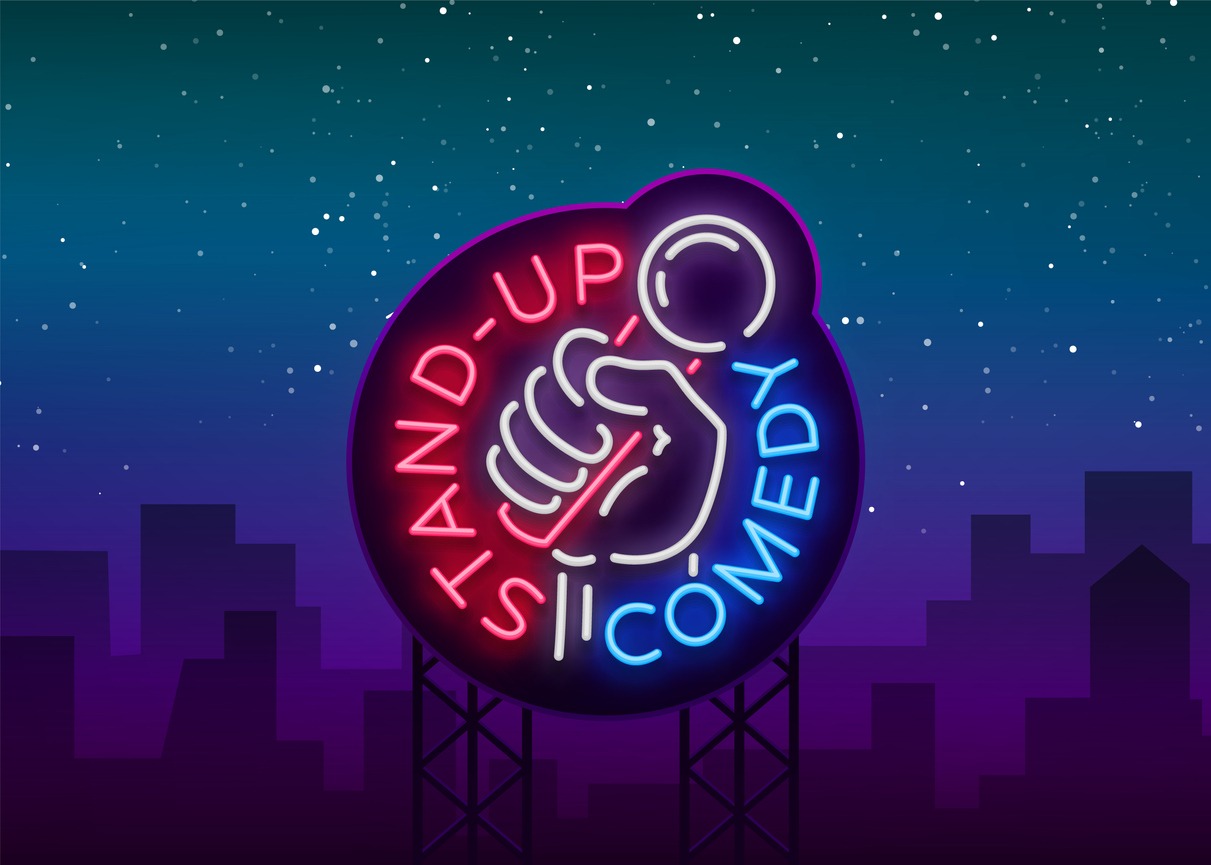In the dynamic world of entertainment, stand-up comedy has carved out its own unique space, especially with the advent of cable TV. Throughout the latter part of the 20th century, cable television emerged as a groundbreaking platform, offering comedians a powerful medium to reach wider audiences. This era witnessed the birth of stand-up comedy specials, which became not just a segment of entertainment but a cultural phenomenon, catapulting many comedians to stardom.
These stand-up specials transformed the traditional landscape of comedy, offering comedians the opportunity to showcase their talent to millions beyond the confines of comedy clubs. With the spotlight of cable TV, numerous comedians transcended from being local performers to national icons, their routines resonating with audiences across the country. This article digs into the journey of stand-up comedy on cable TV, exploring how it became a launchpad for comedic fame and a significant part of popular culture.
The Emergence of Cable TV and Stand-Up Comedy
The relationship between cable TV and stand-up comedy in the latter part of the 20th century marks a pivotal chapter in entertainment history. This era saw the transformation of stand-up from a live, club-based experience to a widely broadcasted phenomenon, thanks to the rise of cable television.
Early Days of Stand-Up Comedy
Initially, stand-up comedy was predominantly a live performance art, confined to nightclubs, bars, and comedy clubs. Comedians honed their craft in these intimate settings, building a rapport with live audiences. Before cable TV, comedians’ exposure was limited to the geographical reach of their performances and occasional appearances on network television shows.
Introduction of Cable TV
The introduction and expansion of cable television in the late 70s and early 80s offered a new platform for entertainment content. Unlike network TV, cable could cater to more niche audiences and provide a variety of specialized programming. This new broadcasting avenue opened doors for stand-up comedians to reach a broader audience, breaking the constraints of geographical limitations.
Stand-Up Specials on Cable Networks
Cable networks began experimenting with airing stand-up comedy specials, which were essentially televised versions of a comedian’s live performance. Channels like HBO and Showtime were pioneers in this space, offering uncensored and longer-format specials that gave comedians creative freedom to express their material without the constraints typical of network television.
Early Adoption and Risks
The idea of broadcasting stand-up comedy was initially a risk; it was untested whether the dynamics of live comedy would translate well to a television audience. The success of these early specials paved the way for more comedians to consider cable TV specials as a viable medium to expand their reach and audience.
The emergence of cable TV revolutionized the way stand-up comedy was consumed and appreciated. It transformed comedians from club performers to television stars and played a critical role in popularizing stand-up comedy as a major genre in entertainment. This period set the stage for the flourishing of comedic talent and laid the groundwork for the comedy landscape as we know it today.
Breakthrough Specials and Comedians
The 1980s and 90s saw a surge in stand-up comedy specials that not only entertained millions but also launched the careers of numerous comedians to unprecedented heights. These specials became seminal moments in the history of comedy, transforming comedians into household names.
Iconic Stand-Up Comedy Specials
Certain stand-up specials stood out for their impact and popularity, becoming defining moments in the careers of the comedians who performed them. For instance, Eddie Murphy’s “Delirious” and “Raw” became some of the most celebrated comedy specials of the time. These specials were notable for their content, comedic style, and the unique persona of the comedians. They often touched on contemporary social issues, personal anecdotes, and observational humor.
Comedians Who Rose to Fame
- Eddie Murphy: Murphy’s charisma and edgy humor in his specials made him one of the most influential comedians of the era.
- George Carlin: Known for his critical and insightful comedy, Carlin’s specials on HBO were seminal in shaping his legacy as a comedic genius.
- Robin Williams: Williams was renowned for his energetic and improvisational style, which shone brightly in his televised specials.
- Other Notable Comedians: Comedians like Richard Pryor, Bill Hicks, and Ellen DeGeneres also gained significant recognition through their cable TV specials.
Impact on Comedians’ Careers
Stand-up specials on cable TV enabled comedians to reach audiences well beyond those who would attend live shows, broadening their fan base exponentially. Many comedians leveraged the success of their specials to venture into other areas of entertainment, including film, television, and even book publishing.
The Role of Comedy Specials in Shaping Public Perception
These specials were instrumental in establishing the personal brands of these comedians, showcasing their unique perspectives and comedic voices. The themes and styles popularized by these specials had a considerable influence on popular culture, often reflecting and shaping societal attitudes.
Breakthrough stand-up comedy specials on cable TV played a pivotal role in catapulting numerous comedians to fame and influencing the comedy landscape. They were more than just entertainment; they were cultural phenomena that highlighted the power of humor and its ability to resonate with a wide audience. The legacy of these specials and the comedians behind them continues to be felt in the comedy world today.
The Role of Cable Networks in Promoting Comedy
Cable networks played a crucial role in the explosion of stand-up comedy in the 1980s and 1990s. Their unique position in the entertainment industry allowed them to take risks and provide a platform for comedians that was previously unavailable on traditional broadcast television.
Pioneering Networks and Their Strategies
Networks like HBO and Showtime were among the first to recognize the potential of stand-up comedy specials. They offered a platform free from the strict content restrictions of network TV, allowing comedians to push boundaries and explore edgier material. These networks invested significantly in marketing and promoting stand-up specials, understanding their appeal and potential to draw in viewers.
Creative Freedom for Comedians
Cable networks provided a space where comedians could perform without censorship, crucial for the authenticity and impact of their routines. Unlike network television, which was limited by stricter time slots, cable allowed for longer-form specials, giving comedians the freedom to develop more comprehensive sets and narratives.
Impact on Audience Reach and Engagement
Cable TV expanded the reach of stand-up comedy from local clubs to national and sometimes international audiences. Through cable TV, audiences could engage with stand-up comedy from the comfort of their homes, increasing the art form’s accessibility and popularity.
Development of Comedy-Focused Channels
The success of stand-up specials led to the creation of channels dedicated to comedy, like Comedy Central. These channels provided even more opportunities for comedians to gain exposure and for audiences to discover diverse comedic styles. Besides stand-up specials, these channels experimented with different comedy formats, including sketch shows, talk shows, and sitcoms, further enriching the comedy landscape.
Role in Discovering New Talent
Cable networks often took chances on new and upcoming comedians, giving them exposure that could launch their careers. For many comedians, a special on a major cable network served as a showcase of their talent to a wider industry, leading to additional opportunities in entertainment.
The role of cable networks in promoting stand-up comedy was pivotal to the genre’s explosion in popularity. By providing a platform that offered creative freedom, broader reach, and dedicated promotion, these networks not only changed the trajectory of many comedians’ careers but also altered the landscape of comedy in the entertainment industry.
Stand-Up Comedy as a Career Launchpad
Stand-up comedy specials on cable TV in the ‘80s and ‘90s also served as critical launchpads for the careers of numerous comedians. These platforms provided unprecedented exposure and opportunities, often catapulting comedians to new heights in their careers.
From Stand-Up to Stardom
- Showcasing Talent: Stand-up specials allowed comedians to showcase their unique talents to a broad audience, which often led to further opportunities in television, film, and theater.
- Examples of Success: Many well-known comedians and actors, including Jerry Seinfeld, Ellen DeGeneres, and Chris Rock, saw their careers take off after successful stand-up specials.
The Role of Specials in Brand Building
- Developing a Personal Brand: Through their specials, comedians could establish a personal brand, showcasing their particular style of humor and point of view. This branding was crucial for audience recognition and career longevity.
- Fan Base Development: Successful specials helped comedians build a loyal fan base, which was essential for sustaining a long-term career in the entertainment industry.
Diversification of Opportunities
- Crossing Over into Other Media: Many comedians leveraged the fame from their specials to branch into other areas, such as acting in sitcoms and movies, hosting talk shows, and writing books.
- Bigger Platforms and Tours: Stand-up success often led to larger tours, international shows, and sometimes, even stadium gigs, significantly broadening a comedian’s reach.
Influence on the Comedy Genre
- Evolving Comedy: Stand-up specials influenced the style and content of comedy, with successful routines often setting trends and shaping the genre’s direction.
- Inspiration for Aspiring Comedians: These specials inspired a new generation of comedians, providing a blueprint for success in the competitive world of comedy.
Challenges and Sustainability
- Maintaining Momentum: While a successful special could launch a career, comedians faced the challenge of maintaining momentum and staying relevant in a rapidly changing industry.
- Adapting to Changing Tastes: The ability to adapt to audience preferences and the evolving media landscape was crucial for long-term success.
Stand-up comedy specials on cable TV emerged as a significant career launchpad for many comedians, providing a platform for exposure, brand building, and career diversification. The impact of these specials extended beyond individual careers, influencing the broader comedy landscape and entertainment industry. The legacy of these performances continues to resonate, shaping the aspirations and strategies of comedians today.
Conclusion
The rise of stand-up comedy specials on cable TV marked a transformative era in entertainment, turning comedians into stars and stand-up into a mainstream phenomenon. These specials were more than just a platform for laughter; they were career-defining moments for many comedians, opening doors to diverse opportunities in the entertainment world.
The legacy of this era is evident today, as stand-up continues to be a vital and revered art form, with its roots deeply entrenched in the groundbreaking specials of the past. The journey from the comedy clubs to the TV screen not only changed the lives of the comedians but also altered the landscape of comedy for audiences everywhere.


